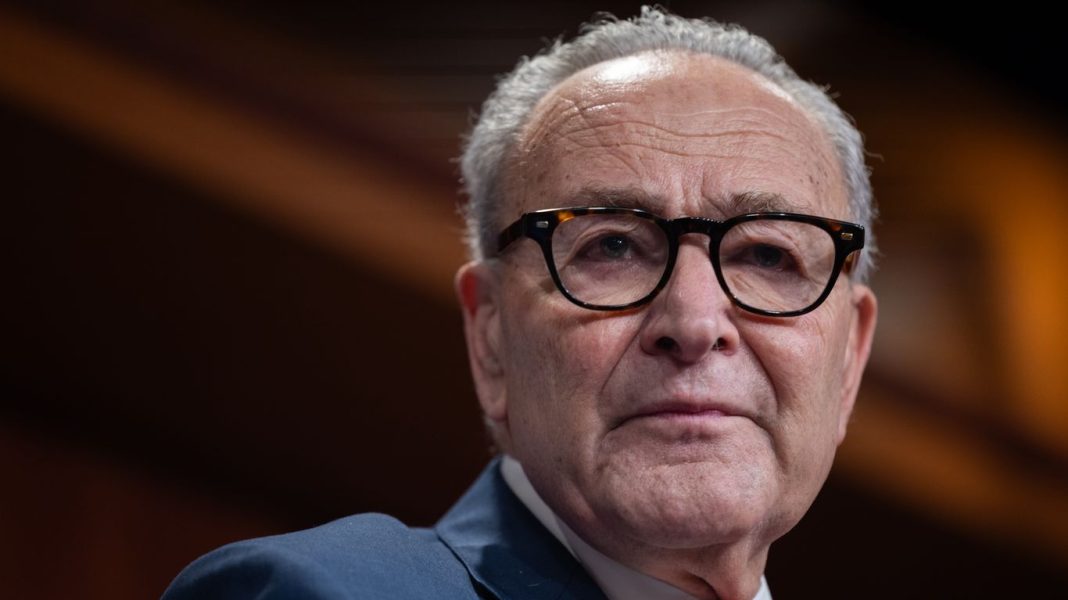The political currents within the Democratic Party are perpetually in motion, and a recent ripple has turned into a significant wave: the progressive advocacy group MoveOn has publicly urged Senator Chuck Schumer to step down from his role as Senate Majority Leader. This call isn’t just a minor internal grumble; it’s a bold declaration that signals a deeper discussion about the party’s direction, leadership, and vision for the future.
The Progressive Call for a New Direction
At the heart of MoveOn’s demand is a palpable desire for more aggressive, unapologetic leadership that they believe can better champion progressive causes. For many on the left, the current political landscape requires a leader willing to push harder, perhaps even take more risks, to achieve transformational change. There’s a sentiment that the Democratic Party, despite holding the White House and a Senate majority, hasn’t delivered sufficiently on key progressive priorities, whether it’s judicial appointments, climate legislation, or economic reforms. MoveOn’s position suggests a frustration with perceived compromises and a call for a leadership style that mirrors the urgency of the issues at hand.
Proponents of this view argue that new leadership could inject fresh energy and strategy into the caucus, potentially galvanizing the base and framing debates more effectively against Republican opposition. As one seasoned progressive strategist observed, “This isn’t just about one person; it’s about a strategic reset. We need leadership that isn’t just playing defense; we need someone who can truly ignite the base and push through transformative change, not just incremental adjustments.” The belief is that a change at the top could unlock a more vigorous pursuit of the progressive agenda, reflecting a growing impatience among a significant segment of the Democratic electorate.
Navigating the Realities: The Complexities of Senate Leadership
However, the reality of leading a closely divided Senate is far more complex than it often appears from the outside. Senator Schumer’s supporters and many political observers point to the immense challenges inherent in his role. He presides over a caucus that spans a broad ideological spectrum, from staunch progressives to moderate senators from red states, all of whom have diverse priorities and electoral considerations. Uniting such a varied group to pass legislation, especially with a razor-thin majority and facing a disciplined Republican opposition, is a constant tightrope walk.
Schumer’s tenure has seen notable legislative achievements, albeit often through painstaking negotiation and compromise. His allies would argue that his experience, institutional knowledge, and ability to keep the diverse Democratic coalition together are invaluable assets. A sudden leadership change could, in this view, destabilize the party’s legislative efforts and potentially open the door to further internal divisions at a critical juncture. The argument is often made that stability and a proven ability to navigate the labyrinthine rules of the Senate are paramount, especially when every vote counts and the margin for error is virtually nonexistent. Removing an experienced leader, no matter the perceived shortcomings, could inadvertently weaken the party’s overall position.
The call from MoveOn to replace Senator Schumer underscores a fundamental tension within the Democratic Party: the push for bold, transformative action versus the pragmatic realities of governing with narrow majorities. This isn’t merely a critique of an individual but a broader conversation about the party’s strategic direction, its internal power dynamics, and its vision for engaging with the American public. As this debate unfolds, it will undoubtedly shape not only the future of Democratic leadership but also the very trajectory of the progressive movement within American politics.
*




